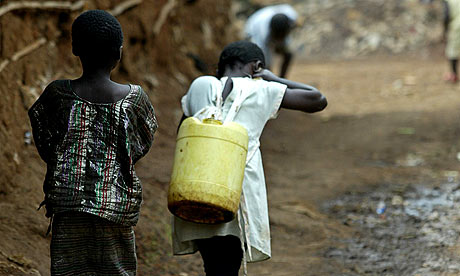It is the stick with which the greens are beaten daily: if we spend money on protecting the environment, the poor will starve, or freeze to death, or will go without shoes and education. Most of those making this argument do so disingenuously: they support the conservative or libertarian politics that keep the poor in their place and ensure that the 1% harvest the lion's share of the world's resources.
Journalists writing for the corporate press, with views somewhere to the right of Vlad the Impaler and no prior record of concern for the poor, suddenly become their doughty champions when the interests of the proprietorial class are threatened. If tar sands cannot be extracted in Canada, they maintain, subsistence farmers in Africa will starve. If Tesco's profits are threatened, children will die of malaria. When it is done cleverly, promoting the interests of corporations and the ultra-rich under the guise of concern for the poor is an effective public relations strategy.
Even so, it is true that there is sometimes a clash between environmental policies and social justice, especially when the policies have been poorly designed, as I argued on this blog last month.
But while individual policies can be bad for the poor, is the protection of the environment inherently incompatible with social justice? This is the question addressed in a discussion paper published by Oxfam on Monday.
Oxfam, remember, exists to defend the world's poorest people and help them to escape from poverty. Unlike the rightwing bloggers, it is motivated by genuine concern for social justice. So when it investigates the question of whether concern for the environment conflicts with development, we should take notice. Kate Raworth, who wrote the report, has created an essential template for deciding whether economic activity will help or harm humanity and the biosphere.
She points out that in rough terms we already know how to identify the social justice line below which no one should fall, and the destruction line above which human impacts should not rise.
The social justice line is set by the eleven priorities listed by the governments preparing for this year's Rio summit. These are:
• food security
• adequate income
• clean water and good sanitation
• effective healthcare
• access to education
• decent work
• modern energy services
• resilience to shocks
• gender equality
• social equity
• a voice in democratic politics.
